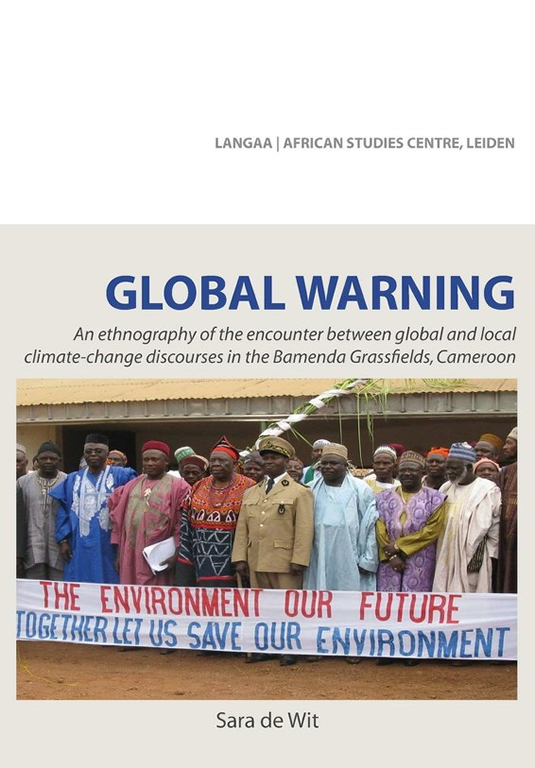written by Sara de Wit
An ethnography of the encounter between global and local climate-change discourses in the Bamenda Grassfields, Cameroon
Moving beyond existing approaches that largely deal with the biophysical consequences of climate change realities in Africa, this book explores an alternative perspective that traces climate change as a travelling idea. It focuses on how globally constructed discourses on climate change find their way to the local level in the Bamenda Grassfields of Cameroon, thereby seeking to understand how these discursive practices lead to social transformations, and to new configurations of power. In the translation process from the ‘global’ to the ‘local’ level a continuous modification and appropriation of the idea of climate change takes place that finally leads to a concrete implementation of climate change related projects and sensitization campaigns. Hence, it is argued that in this increasingly interconnected and mediated world people in Africa (and elsewhere in the world) do not solely adapt to a changing climate, but also adapt to a changing discourse about the climate. Travelling between traditional rulers and their palaces, to the world of NGOs, journalists and ordinary farmers this study brings the reader on a captivating journey, that reveals how climate change engages in a variety of ways with different lifeworlds, revitalizes local cosmologies, gives birth to a new development paradigm, and moreover how it evokes apocalyptic anxieties and trajectories of blame at the grassroots level.
| ISBN | 9789956792115 |
| Pages | 238 |
| Dimensions | 244 x 170 mm |
| Illustrations | Colour Illustrations |
| Published | 2015 |
| Publisher | Langaa RPCIG, Cameroon |
| Format | Paperback |



